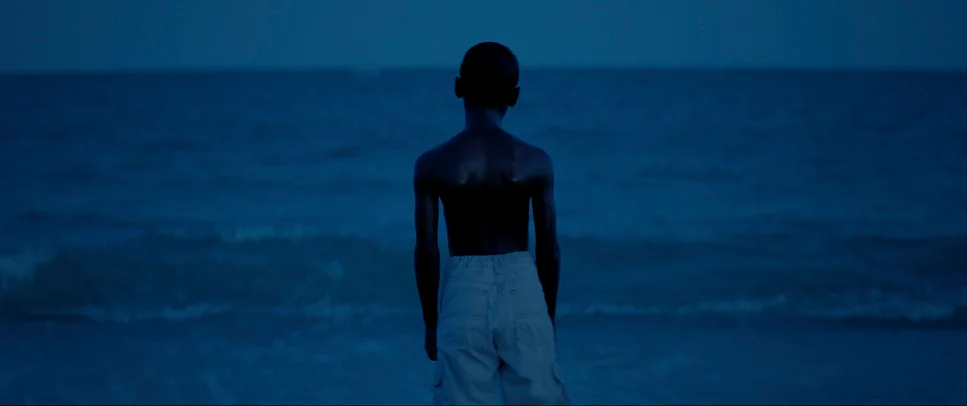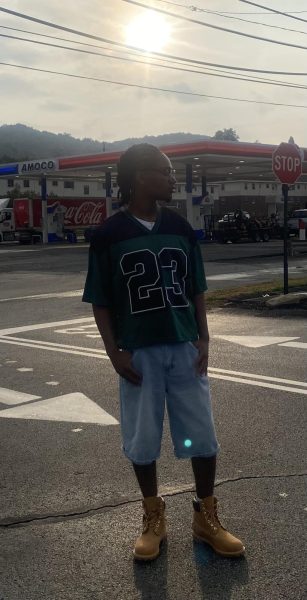I didn’t see myself in movies until I was already like sixteen. That’s a hell of a thing to realize, isn’t it? You’re nearly an adult–or grown if you must, watching the world flicker by on a screen, and it hits you: you’ve never been the hero, the love interest, or even the villain. Not really. Not in the way that feels real. Not in a way that’s yours.
Growing up, I clung to what I could. Will Smith in The Fresh Prince was the closest thing to a character that looked like me and sometimes Chris from Everybody Hates Chris. But even then, they were slick, charismatic, and weren’t like how I was. I was awkward. Quiet. A little too soft for what the world said Black boys were supposed to be.
I loved books more than basketball and played roblox instead of writing raps. Where was the movie about that kid? The one who’d rather hide in a library than face the world? The one who didn’t know if he belonged anywhere, even among his own?
And then came Moonlight. I sat in my room, it was freezing cold, and I could feel the walls crack around me. Here was a story about a boy who didn’t fit in, who was trying to find himself in a world that’s already decided who he should be.
Chiron was and still is my favorite character in any form of media… he’s quiet and unsure, navigating his sexuality, his identity, his Blackness—it was like looking into a reflection I’d never known existed. And for the first time, I felt seen. Like the parts of me I thought were too small to matter were suddenly in full focus, and the emotions that came after were raw and undeniable.
Around a few months ago, I watched Waves with my grandma, and I braced myself. Black movies can hurt when they’re done right. They cut deep, peel back layers you didn’t even know you were hiding. Watching that family unravel, seeing a Black father trying to mold his son into a version of himself—and watching that son crack under the weight of it—was almost too much.
It even made my grandma cry..
Because it’s familiar, isn’t it? That pressure to be strong, to be more, to be perfect. Black boys don’t get to falter. We don’t get soft landings.
These films gave me something I didn’t know I was missing: permission. Permission to feel, to break, to rebuild. They showed me that my story doesn’t have to fit the mold. I can be soft, different, angry, fragile, whole. I can be human.
But here’s the thing: they’re still too rare. For every Moonlight, there’s a dozen blockbusters where Blackness is either erased or flattened into a stereotype. We’re sidekicks and comic relief, background noise in someone else’s story. And even when we do lead, it’s often through pain. Slavery, police brutality, systemic oppression.
Important stories, yes. They’re necessary. But we’re more than our suffering. We deserve joy. Love. Complexity.
When I see Moonlight or Waves, I think about the next generation of Black boys, the ones who might grow up seeing themselves on screen before they’re grown.
What will that do for them? How will it shape the way they see themselves, the way they move through the world? It’s something I’ll never fully know, but it gives me hope.
So, here I am, still catching up. Still watching, still learning, still healing. And every time I see a movie that gets it right, I feel a little less alone. A little more whole.
Black representation in the media is far from perfect, but it’s growing. And with every story, every character, every moment that feels real, I’m reminded that we belong here. On screen. In the spotlight.

